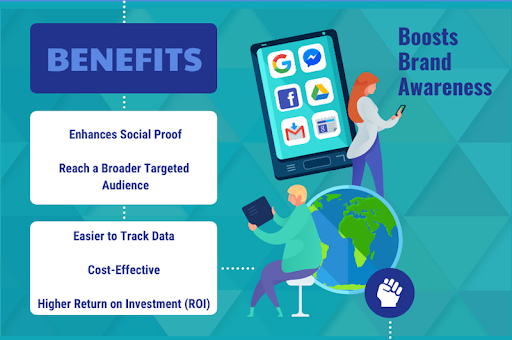Sending your data to our servers, please wait...





Oops... No results found.
Please try a different search phrase.
Digital Marketing 12 min read
Fed Fix: Five Growth Marketing Tactics for Startups
Written by Ayesha Renyard
Content Writer @ Galactic Fed
Expert reviewed by Dallin Porter
Marketing Director @ Galactic Fed
Published 02 Mar 2022
As a startup, you’re moving a mile a minute—and you want your business growth to do the same. So your startup marketing needs to work fast and furiously.
That’s why you need a growth hacking strategy. Growth hacking is an experiment-driven approach focused on finding the most effective ways of growing a business. Rather than following conventional best practices, it’s all about finding quick, cost-effective methods that work for your company. Innovation is at the core of growth hacking.
While you may not be a growth hacker, we’ve got a team of them right here at Galactic Fed. We use a combination of data-driven methods to help our clients accelerate their businesses—and we’re sharing them with you today.
As part of our Growth Marketing Series, here are five methods to help you with your startup marketing. Learn what they are, how to implement them, and how to measure success—so you can build a growth hacking strategy like an expert.
1. Email Marketing
Email marketing is the practice of sending marketing messages to prospective and current customers via email to sell, educate, or build loyalty. Email marketing has been a leading growth strategy for years when it comes to scoring leads and conversions.
Source: Shopify
Why is email marketing so effective? Unlike search engines and social media platforms, which help your business get discovered by future customers, email allows you to maintain and strengthen relationships over time—leading to revenue growth in three ways: increased number of customers, increased purchases per customer, and increased average order value.
Here’s how:
- Automated welcome and abandoned cart emails can increase conversion rates.
- Bounce back, or win-back campaigns can increase a customer’s number of purchases.
- Lifecycle campaigns and broadcasts can automatically highlight high-value products to the right customers.
Getting started with email marketing
For your startup marketing, we want you to focus on building your email list. If you’re getting ready to launch your business, a new product, feature, or service, it’s the perfect time to do so. Here are areas you can promote your email list:
- Exit intent pop-ups
- Fully or partially gated content
- Squeeze pages
- Social media
When setting up your email list, do so through an email platform like Mailchimp. This will allow you to automate your campaigns—and receive robust data on their performance.
Ready to roll? Create your first campaign with this email marketing guide in tow.
2. Referral Marketing
Startup marketing is all about working smarter, not harder. Referral marketing enables and incentivises your existing customer base to encourage their networks to try your product.
Referral marketing shouldn’t be confused with word-of-mouth marketing. While we all know that personal recommendations are effective, word-of-mouth is not easy to influence and measure—which isn’t helpful from a growth hacking point of view. Referral marketing, on the other hand, puts tools in place to encourage, reward, and track customer recommendations.
Source: Airbnb
In this example, Airbnb makes referring easy and rewarding for the existing customer. Customers can send their friends an email or share a link via text, messenger, or Facebook. If the friend uses Airbnb, then they get a travel credit. More importantly, Airbnb scores a new customer and encourages their existing customer to spend more on their platform.
Getting started with referral marketing
To keep things easy on your end, use a referral marketing solution to set up your referral strategy, such as Friendbuy. Many of these platforms offer templates with tracking built-in, so you can experiment with different programs and find the most effective one for you.
Growth hacking is all about testing and experimentation. To create their current referral program, Airbnb tested many different things: the messaging geared towards the inviters and invitees, the shareable links, the design elements, and the incentives. And they did so with these metrics in mind:
- Monthly active users sending invites
- Invitees per inviter
- Conversion rate to new user
- Conversion rate to new guest
- Conversion rate to new host
- Revenue impact potential
To get the most bang for your buck, identify the metrics that you want to assess. Then, A/B test to understand what’s most effective at turning referrals into conversions for your startup.
3. Co-Marketing
You’ve probably heard the old saying: “Two heads are better than one.” We believe the same can be said about marketing.
Co-marketing involves two or more companies working together to reap the benefits of their combined efforts. You work with non-competitors with a similar target audience to maximize results. Here’s an example: Buffer and Social Chain released their 2019 State of Social report and received 17,000 download page visits in just one week and more than 3,000 shares across social media. These results were higher than an average article shared on either of their sites!
Source: Buffer
Getting started with co-marketing
Co-marketing is a great way to scale your marketing efforts, but it can also easily fall flat if you don’t build out your strategy. To turn co-marketing into growth hacking, it’s essential to define a measurable goal and utilize trackable channels.
Let’s say you want to create a downloadable report—like what Buffer and Social Chain did—to generate more leads. Discuss your goals with your partner and make sure they want to achieve the same goal. In this case, if they’re looking to increase sales, you may need to rethink the content you’re creating together or reevaluate if this partnership suits your goal right now.
With a goal set in stone, you can now create your promotional strategy. Choose channels that would best support this goal—and ensure that these channels are trackable. Setting Urchin Tracking Module (UTM) parameters will help you track the effectiveness of your campaign across the different traffic sources and publishing media.
Once the campaign is launched, take a look at the data and see what channels brought you the most leads. Did you achieve your lead generation targets? This is the digging you’ll need to do to understand if co-marketing is right for your startup marketing—or what you need to do next time to hit your targets.
4. Affiliate Marketing
Affiliate marketing is a strategy where a company promotes its products or services through another content creator’s platform, including websites, social media pages, blogs, videos and podcasts. To maximize results, businesses should work with content creators in their industry with similar audiences.
Like referral and co-marketing, you get to leverage consumers’ trust in word-of-mouth recommendations. Up to 97% of consumers will look for product reviews and recommendations before buying. If a content creator they trust recommends your product or service, they’ll be more inclined to make the purchase—even if they’ve never seen or heard of your brand before!

Source: Referral Rock
Affiliate marketing is also a great growth hacking idea for startups because it’s a cost-effective, low-risk investment. You only pay affiliates a commission when they bring in a new sale, meaning you won’t spend money unless you see results. You can also set the affiliates’ commissions rates—so you can keep them in a range you can afford.
Getting started with affiliate marketing
To get started, you need to find the right affiliates. You can do initial research on Google and social media. Once you find them, ensure they have a large, relevant following and high engagement. It’s also worth your while to assess brand fit—do their personality, tone of voice, and ethics align with yours?
You’ll also need to take time to define affiliate rates. Look at your competitors’ affiliate commissions and set your rate to be competitive in the market.
Like most growth hacking strategies, you need to identify specific, measurable goals. For your affiliate marketing strategy, ask yourself: How much revenue do I want affiliates to bring in quarterly and yearly? How many new sales should they bring in? Share your goals with the affiliates and make sure they’re attainable.
To measure your targets, take advantage of affiliate marketing software. These automate all the tasks involved with managing your program, from tracking affiliate links and sales to compensating your affiliates.
Lastly, write up an affiliate agreement. When it comes to working relationships like these, it’s in your best interest to have everything written in stone.
5. Social Media Marketing
Social media marketing is essential for any business—but it’s particularly valuable for startups. Why? It plays a huge role in top-of-funnel marketing, which is where you grow brand visibility and awareness. That’s right—it’s your ticket to increasing exposure and building your audience.
Because social media marketing is all about engagement, it’s also a great opportunity to receive feedback from your customers and interact with industry influencers.
Take a look at this five-minute video to get a summary of what social media marketing is and why it’s so effective for startup marketing:
While there are many niche social media platforms, we recommend starting with the “Big Five”:
- Youtube
Luckily, you won’t need to create new content for these platforms. Most content you create can be repurposed to fit the needs of each platform and its respective audiences.
Getting started with social media marketing
If you haven’t gotten the impression already, growth hacking is all about working with data—and your social media marketing is no exception. Here are some key areas you need to approach with a data-driven mindset:
- Your target audience: If you’ve created a buyer persona, you probably have an idea of what your target audience looks like. But once you launch on social media, keep an eye on who engages with your content. You may notice a completely different audience than what you expected—keeping an ear to the ground will ensure you don’t miss out on any opportunities.
- Your goals: Running a social media account is one thing, doing so with a goal in mind is another. It’s crucial to come to the table with quantifiable goals. Do you want to grow your audience? Engagement? Leads? Sales? Once you define your goals, you can create content to cater to them.
- Your KPIs: KPIs need to be set to ensure you meet your goals. If you want to grow your audience, keep an eye on the number of followers, shares, and post reach. If you’re looking for leads and sales, take a look at the number of clicks and web traffic. If you’re not hitting your goals organically, you may want to look into paid media.
It’s also important to keep an eye on engagement drop-offs. If you see a decrease in comments, likes, shares, and followers, here are some common reasons why:
Ready to dive in? Take a look at this post for a step-by-step guide on kickstarting your startup’s social media strategy.
There’s a New Growth Hacker on the Block
From our team of growth hackers to you, here are five marketing tactics that’ll keep up with your startup growth—not hold you back.
If you have questions about SEO or paid media, reach out to our specialized team. Let’s drive those results up and to the right together!

Ayesha Renyard
Content Writer @ Galactic Fed



